This is a guest post by Tim Jordan, M.D.
Kids today not only experience anxiety due to peer and societal pressures, but now they have to mix COVID-19 worries into their stew of doubt, stress, fear and depression.
But there is a way for adults to help kids through this difficult time, and it comes from offering the right kind of support that will help them navigate the challenging times they are facing now and in the future.
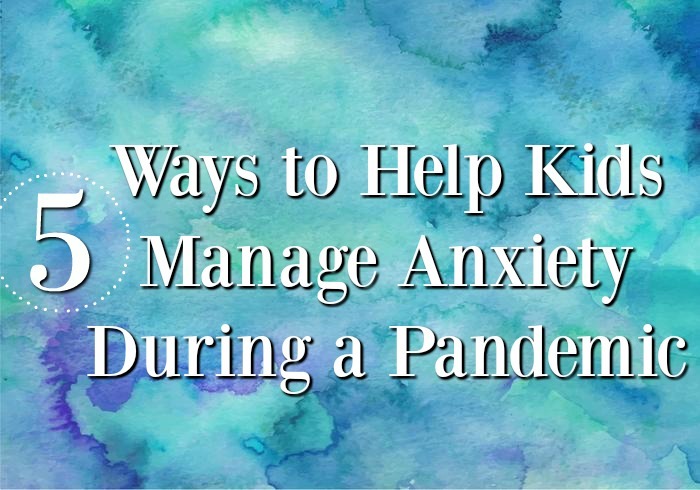
First, let me offer some perspective on where kids have been up until the point when the world went sideways because of a global pandemic. Up to 75% of children and teens are exposed to at least one adverse experience growing up, with half reporting two or more. Specifically, 40% have experienced divorce; 25% live with an alcoholic; 33% have been bullied; 25% have experienced sibling abuse; 10% have had a parental death; 25% have suffered from child abuse (although 85% cases are unreported); 25% of girls have been victims of sexual abuse; 4% have an incarcerated parent; 25% have a depressed parent; and 20% experienced domestic violence.
With these kind of statistics, it’s clear that most kids have – or are currently experiencing – at least one such adversity, which is why the stress from the COVID-19 crisis is so concerning.
Dr. Barry Zuckerman has described the “double jeopardy” that crack babies endure when they struggle to not only overcome their own challenges, but also the challenges the mother is facing – depression, domestic violence, poverty, neglect and abuse. The combination of these factors results in more behavioral problems and issues such as poorer school performance.
I believe our kids with anxiety are facing something similar with the combination of their current emotional challenges and the stress now brought on by the pandemic.
Let me give an example. I saw Jen in counseling because of increasing levels of stress and anxiety. She is an eighth-grader whose father died of a drug overdose when she was 4-years-old. Her mother took off for five years, leaving her with her grandmother. But Mom returned with a boyfriend (both are in recovery) when Jen was in sixth grade and Jen grew close to the boyfriend. But he was kicked out of the house when he drove Jen home drunk and she hasn’t seen him in three months. In addition, her grandfather has been diagnosed with Alzheimer’s Disease. Despite all this, Jen plays on two year-round club sports teams.
That’s a lot on one young girl’s plate. Can you now imagine what she’s going through with the added uncertainty and anxiety about COVID-19?
Jen is not a unique case. There are common stressors impacting kids today, including “lookism” (discrimination based on physical appearance); pressure for straight A’s; a push for high-level year-round sports teams; the pressure to get into a top college; impossible-to-attain social media standards and expectations; friendship drama and cyberbullying; coming to terms with an ever-changing body and hormones; and balancing high levels of homework with activities and electronic time.
It’s now more important than ever with the growing anxiety surrounding the pandemic that we come to the aid of kids who are exhibiting anxiety. We need to help them.
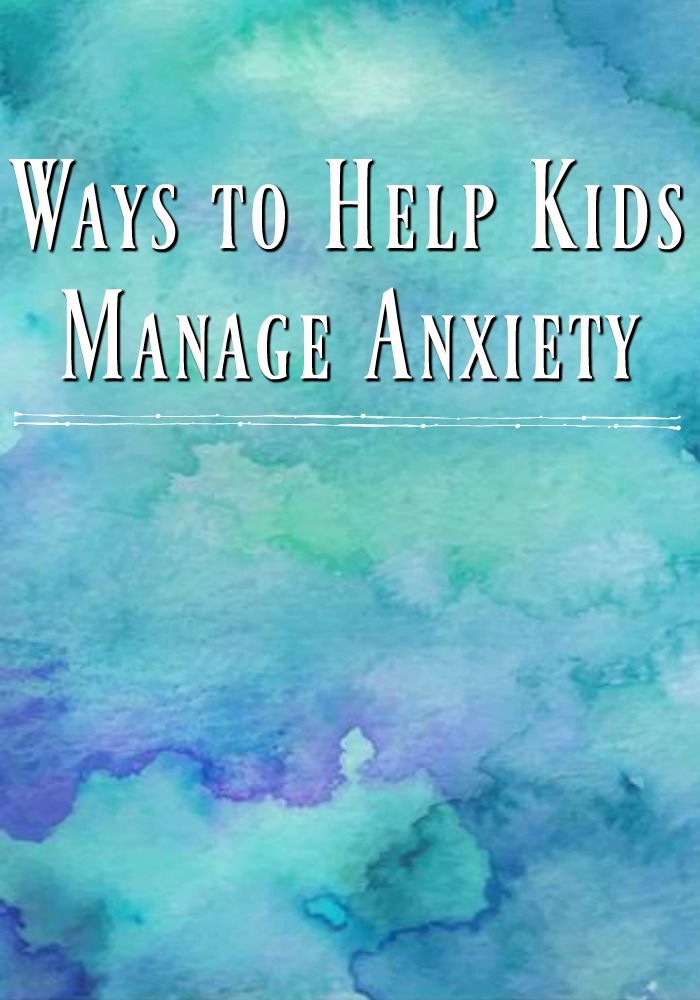
5 Ways to Help Kids Manage Anxiety
1. Focus on what they can control. What we always have control over is our emotions and our reactions to people and events. Encourage your child to spend some quiet time each day expressing all of their feelings through journaling or artwork. I’ve been telling kids recently about how we know about the lives of adolescent kids from past times through their journal entries; Anne Frank is a prime example. The maxim that “what is unexpressed becomes unmanageable” fits very well in these trying times. The weather of the day doesn’t need to dictate the climate of the era. 2. Manage self-talk. Remind kidss of the need to catch themselves when they start to ruminate worst case scenarios and to mindfully bring themselves back to the present moment. It’s best to not get too far ahead of ourselves with “What ifs?”
3. Use time wisely. With more free time due to not attending school or sports and activities, I’ve been encouraging kids to devote time to developing their interests and passions. Ask your child what he or she has always wanted to try but didn’t have time for. It’s a great time to take up photography, painting, writing stories or books, learning to play an instrument like guitar or designing a website. They can Google directions for just about everything. Once this crisis is over, I’d hate for kifs to look back and only have hours of Facebook or Netflix to show for this gift of time.
4. Be of service. Perhaps the best way to pull yourself out of depression or anxiety is to get out of yourself and be there for others. Studies have shown that helping others and doing work that is meaningful and purposeful is linked to improved health and well-being. The benefit of giving help may even outweigh that of receiving help. One study showed helpers received eight times the benefit of those who got support. Brainstorm ways your child might be of service to those in need.
5. Connect. The longitudinal Grant Study begun in 1938 discovered that the most important influence on whether the Grant men’s lives turned out well was love; those with love in their lives flourished at home and at work. The National Longitudinal Study of Adolescent Health evaluated around 12,000 7th-12th graders and found what most protected at-risk teens from poor outcomes such as stress and anxiety was feeling connected to a parent, teacher or mentor. We’ve all been afforded some unexpected down time in our homes, so be sure to spend some focused, quality time together. As Japanese writer Haruki Murakami says: “And once the storm is over, you won’t remember how you made it through, how you managed to survive. But one thing is certain. When you come out of the storm, you won’t be the same person who walked in. That’s what this storm’s all about.”
Finally, remember that those who have struggled are more likely to help others in need, be more inclusive and feel empathy for those in pain. Use these five ideas to help your child manage and prevent stress and anxiety as this crisis unfolds. Let’s hope that this experience allows our country to heal old wounds and to come together as one, with our kids helping lead the way.
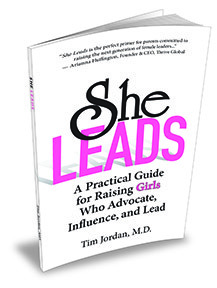
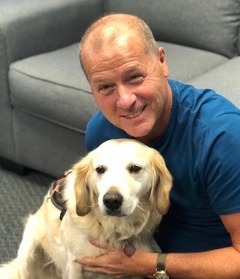
Tim Jordan, M.D. is a Developmental and Behavioral Pediatrician, speaker, author and media consultant, blogger and podcast. Tim is dedicated and passionate about serving children, whether it is in his private practice counseling girls 6 – 22 years; consulting with schools; speaking to parents; or facilitating at his weekend retreats and summer camps. His new book is She Leads: A Practical Guide for Raising Girls who Advocate, Influence and Lead.
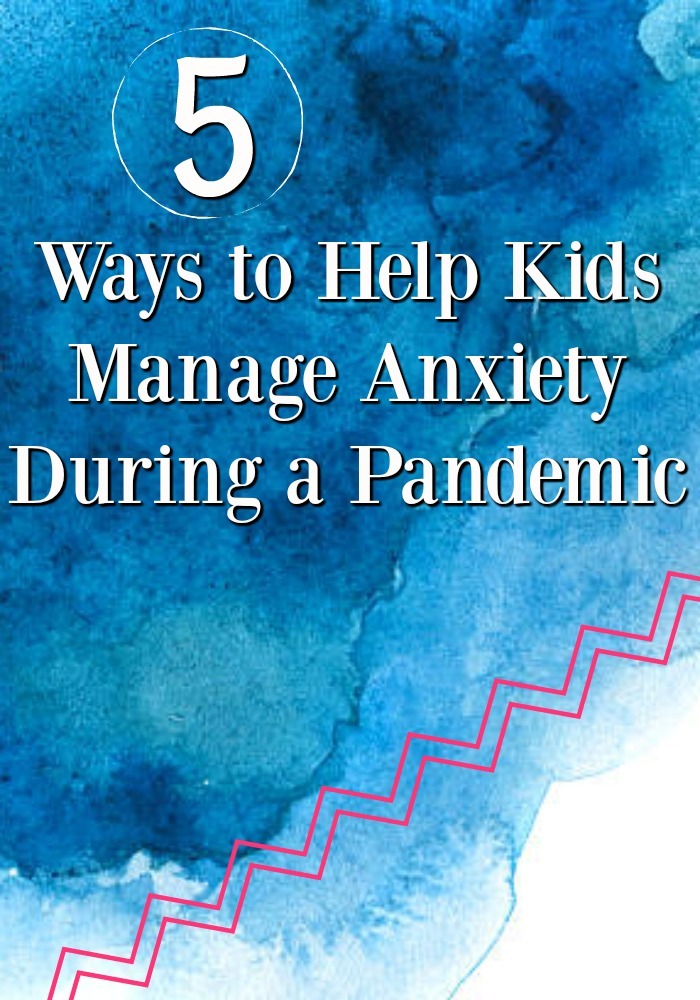
Great ideas…and not just for kids either! 🙂